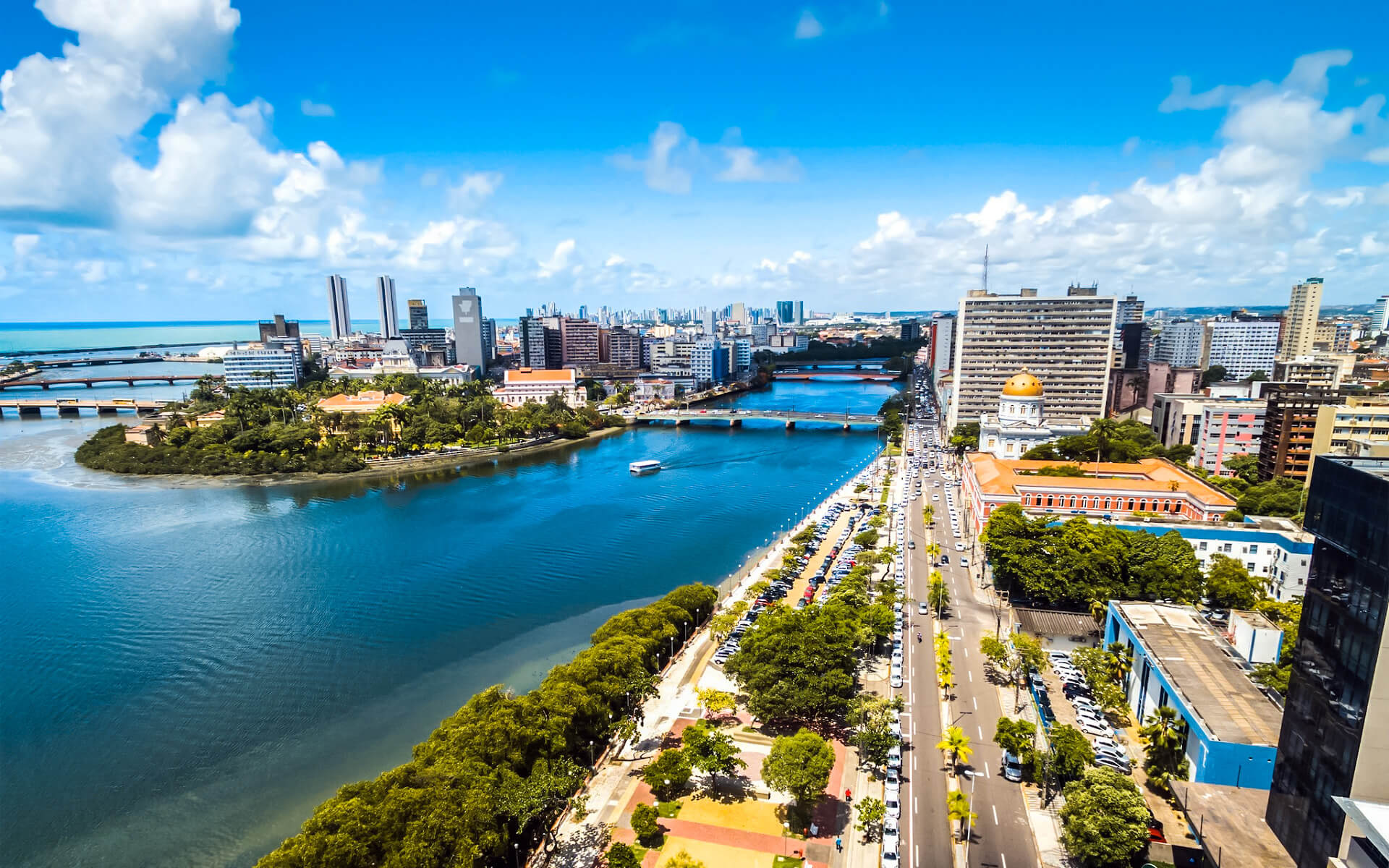[lwptoc]
Recife is Brazil’s sixth-biggest metropolitan area, with 3,743,854 residents, the largest metropolitan area in the North/Northeast Regions, the sixth-largest metropolitan influence area in the country, and the capital and largest city of the state of Pernambuco. In 2012, the city proper had a population of 1,555,039 people.
Recife was built in 1537, during the early Portuguese colonization of Brazil, as the principal port of the Captaincy of Pernambuco, which was famed for its large-scale sugar cane production. The city is at the junction of the Beberibe and Capibaribe rivers, just before they reach the Atlantic Ocean. It is a significant port on the Atlantic Ocean’s east coast. Its name refers to the stone reefs that line the city’s coastline. Recife’s landscape is defined by its many rivers, tiny islands, and over 50 bridges, which has earned the city the nickname “Brazilian Venice.” As of 2010, it is Northeast Brazil’s capital city with the highest HDI.
The Metropolitan Region of Recife is the state of Pernambuco’s primary industrial zone; key goods include those generated from cane (sugar and ethanol), ships, oil platforms, and electronics. Numerous industrial enterprises were founded in the 1970s and 1980s as a result of government fiscal incentives. Recife has a long history as the most significant commercial centre in Brazil’s North/Northeastern region, with about 52,500 businesses in the city and another 32,500 in the metro area, for a total of more than 85,000.
Recife has developed into Brazil’s second biggest medical center (second only to So Paulo) as a result of a vast supply of labor and substantial private investment. Modern facilities equipped with cutting-edge technology welcome patients from numerous neighboring states.
Recife is a prominent tourist destination in the Northeast, both for its beaches and for its historic monuments, which date all the way back to the region’s Portuguese and Dutch occupation. Porto de Galinhas beach, located 60 kilometers (37 miles) south of the city, has been frequently named the finest beach in Brazil, attracting a large number of visitors. The Historic Center of Olinda, located 7 kilometers (4.3 miles) north of the city, was designated a UNESCO World Heritage Site in 1982, and both towns’ Brazilian Carnivals are world-famous.
The city is a center of education and is home to the Federal Institution of Pernambuco, the state’s main university. Numerous historical luminaries from Brazil, including poet and abolitionist Castro Alves, studied at Recife. Recife and Natal are the two Brazilian cities with direct flights to the World Heritage Site of Fernando de Noronha.
The city was one of the 2014 FIFA World Cup host cities. Furthermore, Recife hosted the FIFA Confederations Cup in 2013 and the FIFA World Cup in 1950.


